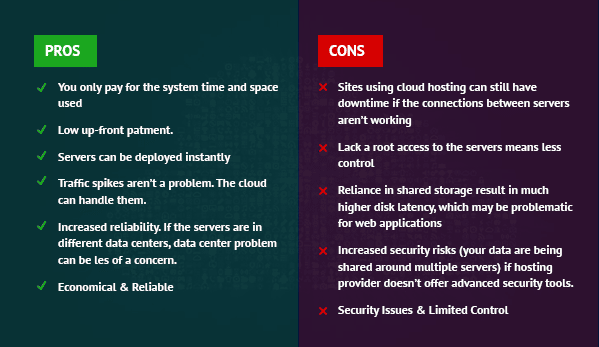Top 3 Cloud Storage Data Security Issues & Solutions

As the migration to the cloud continues, cybersecurity is becoming all the more important.
According to Gartner, an industry leader in technology research, most information technology (IT) outsourcing deals will be influenced by cloud-adoption strategies by 2020.
Whether you are outsourcing your IT practices or performing them in-house, cloud security must be a top priority. Here is a look at the top three cloud security risks you need to fix ASAP.
Data Breaches
The cloud brings a plethora of benefits to your overall operations, including enhanced collaboration capabilities and reduced overhead expenses.
However, data breaches are continuing to become huge security risks. In 2017, the Equifax data breach impacted more than 143 million people, making it clear that no matter how large or small a company might be, no one is immune to a potential data breach.
In fact, in 2017 alone, more than 1.4 billion records were compromised due to data breaches.
To protect your company, have a cybersecurity specialist assess its IT infrastructure.
In addition, keep all business and personal accounts separate from each other.
Most importantly, employees need to be properly trained on how to avoid data breaches.
Internal Threats
Most companies underestimate the possibility of internal threats to cloud security such as leaked passwords and confidential data — be it malicious or simply human error.
While most employees can be trusted, a single rogue staff member who has even a minimal amount of cloud-hacking knowledge can carry out a cyber attack that brings down the entire IT infrastructure.
Fortunately, daily monitoring of cloud usage can easily deter internal threats.
Keep in mind that the person responsible for performing daily monitoring should be monitored, as well. Ideally, you’ll want to outsource cloud monitoring to make sure internal hacking and abuse aren’t taking place.
Update All Custom Applications
Creating custom apps can bring your company a new level of success, especially regarding efficiency and superior customer experience. Unfortunately, it also brings a new level of security risks.
Application programming interfaces (APIs) are crucial to cloud security, and they must be updated to ensure they are not vulnerable to cyber attackers.
In a sense, APIs are a front door to your custom apps. If they aren’t secured properly with a deadbolt (i.e., regular updating), they’re left wide open to attacks.
Your customers are constantly using APIs to interact with your cloud applications.
In addition to regular monitoring, you should practice provisioning to keep cloud security risks to a minimum.
Not only can malicious attacks occur if the APIs aren’t updated regularly and protected properly, but accidental breaches can occur as well, exposing confidential and valuable information to the public, hackers, or both.
To create policies that protect APIs, and mimic the best security practices of industry leaders such as Amazon Web Services.
These three cloud security risks are only a few of the ones you need to prioritize.
They’re a good starting point, however, for making sure your cloud environment is protected from breaches and hackers.







